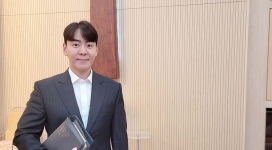
While Amanda Knox awaits what may be her final trial in a legal battle that has already lasted for six years, a juror that helped convict her the second time has stepped forward to say she may have made a mistake agreeing to that guilty verdict.
Genny Ballerini was part of the panel of Italian judges that voted to reinstate Knox's murder conviction in 2014, and now she says that the prosecution's case contained "questionable proof, flimsy evidence and bizarre testimony."
Knox, now 27, and former boyfriend Raffaele Sollecito, who will be 31 next week, were convicted of the murder of Meredith Kercher, a British exchange student who was a roommate of Knox's in 2007 when the murder happened. Initial evidence pointed to Knox and Sollecito having a hand in the murder, while DNA evidence pinned Ivory Coast native Rudy Guede as an additional killer. Guede was convicted and sentenced in 2008, but Knox and Sollecito have been in and out of jail through numerous trails and appeal cases since then.
After serving almost four years of their 25/26 year prison sentences, Knox and Sollecito were released when Italian judges found "material non-existence" of the evidence that originally convicted them. But during a new trial in 2014, a new panel of judges, including Ballerini, reviewed new evidence and found the pair guilty once again.
But it's that ruling that has the juror speaking out a year later to say that she doesn't feel that the re-conviction was right. "I certainly had many doubts about the guilt of the two young people," she said. "I was not convinced of their innocence." But she describes an "atmosphere of guilt" that she felt pressured her to go with the other judges.
On March 25, Knox and Sollecito will face Italy's highest court to determine if this new guilty verdict and sentencing will carry or if the legal circus will continue in a third appellate trial. During the 2014 ruling, Knox faced a sentence of 28 and a half years while Sollecito faces 25 years.
Although Knox is American, she's being tried in Italy, where double jeopardy is not something that can save someone from being re-tried for the same case. Due to the extremely high profile and international nature of this case, it's expected that the Italian high court will call for another retrial. It's not uncommon for murder trials to go on for several years through Italy's judicial system, with one famously going back and forth from trial to trial for 22 years.
"[...] In a murder case, if it goes back [to appeal] for a third time, it generally points to enough reasonable doubt to acquit them in the eyes of the court," said Francesco Maresca, the Kercher family's attorney.
But another big question on the minds of every is that of extradition. If Knox is convicted and ordered to return to Italy to fulfill her sentence, who will take her there? She's already said that she will never return, but due to an extradition treaty between the U.S. and Italy, Italian law dictates what happens in spite of double jeopardy.
"Double jeopardy may be a popular concept to talk about in the United States," said Nicola Canestrini, and Italian lawyer who specializes in extradition cases. "But it won't make a difference in a legal argument when it comes to extradition. The United States, in signing an extradition treaty, agrees that Italy's three-tier judicial system is not double-jeopardy."
So now we wait until next Wednesday to see if this juror's new statement will matter, and if the Italian high court will decide to uphold the latest conviction or throw the case back into the system.







